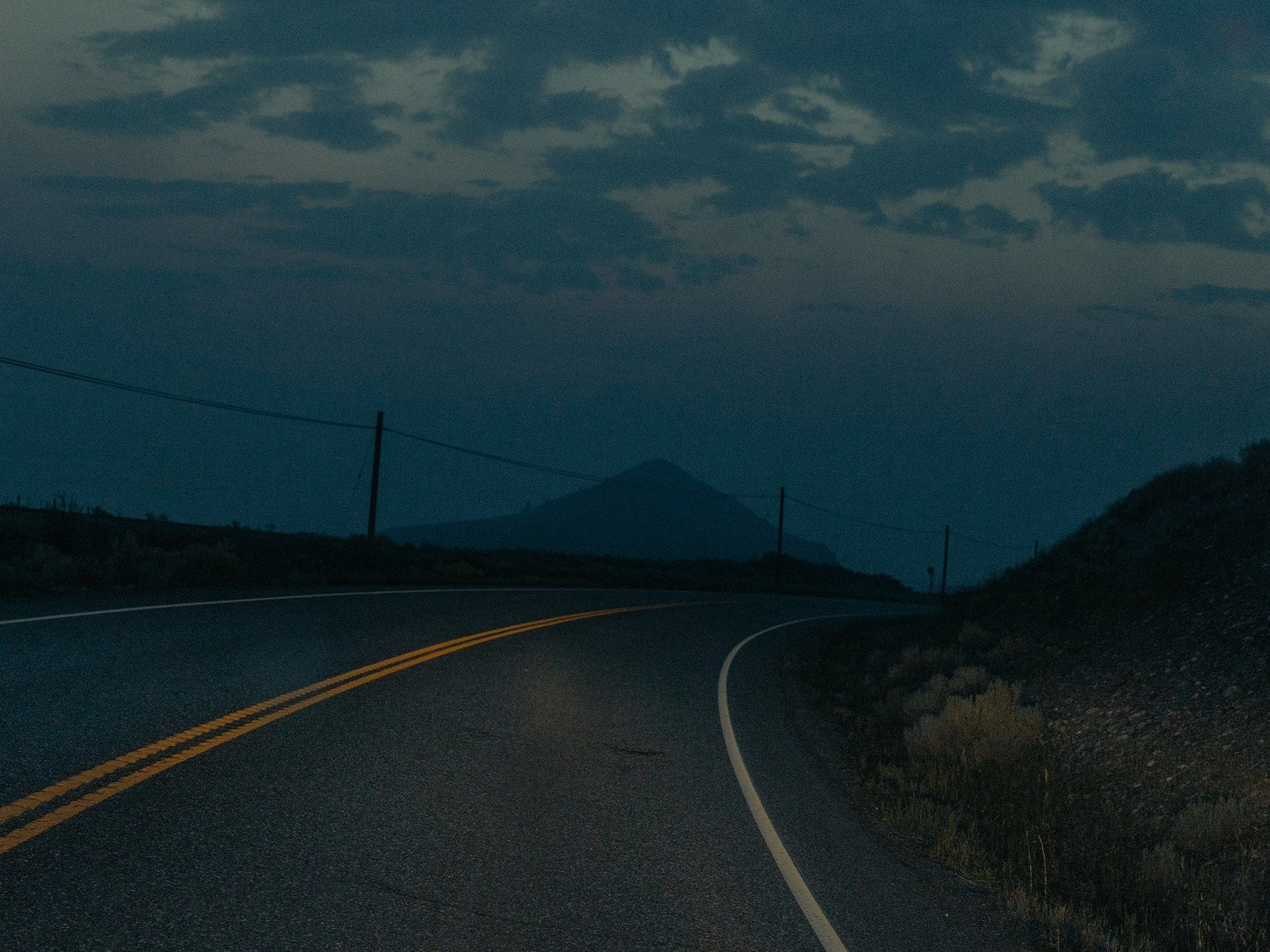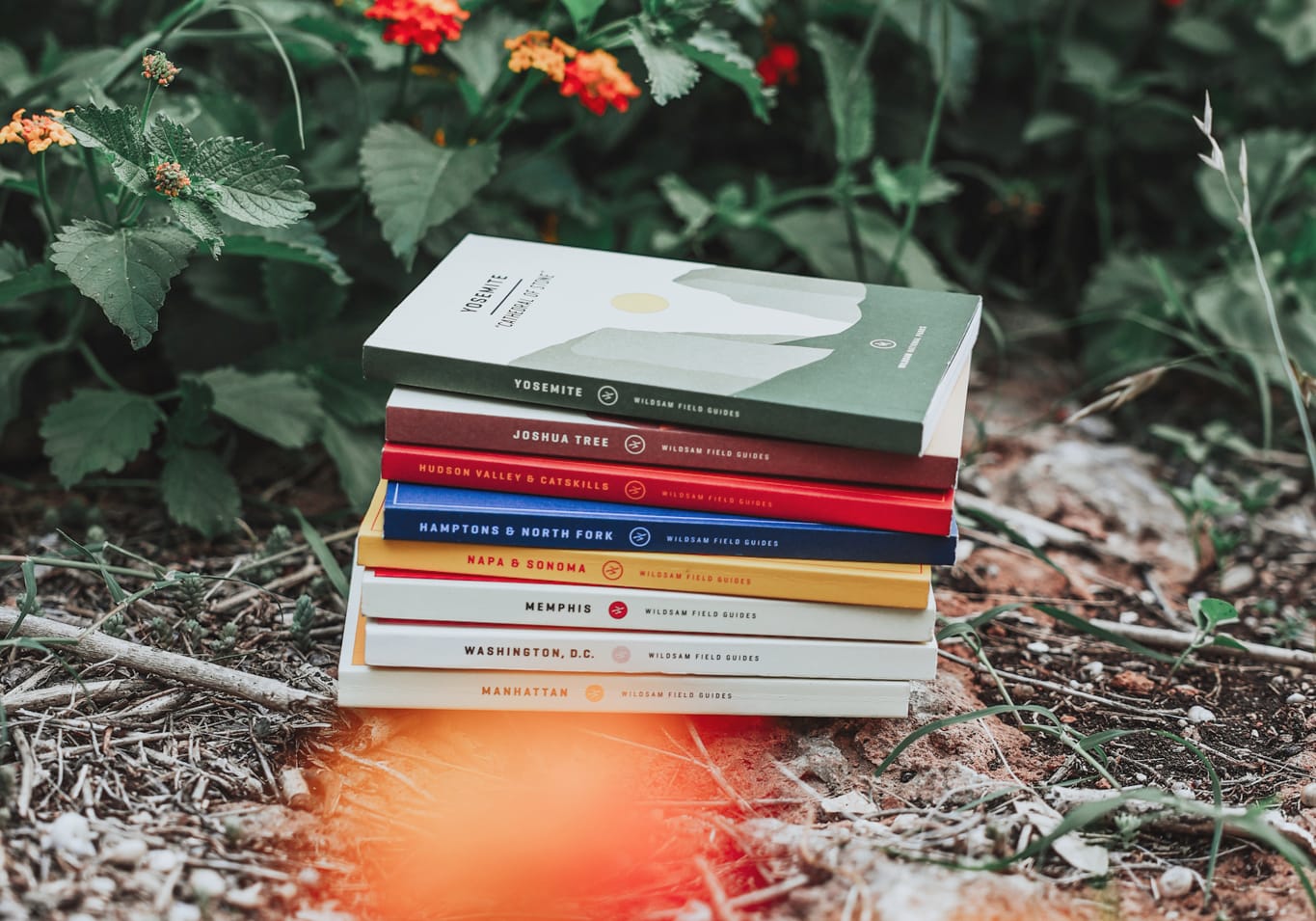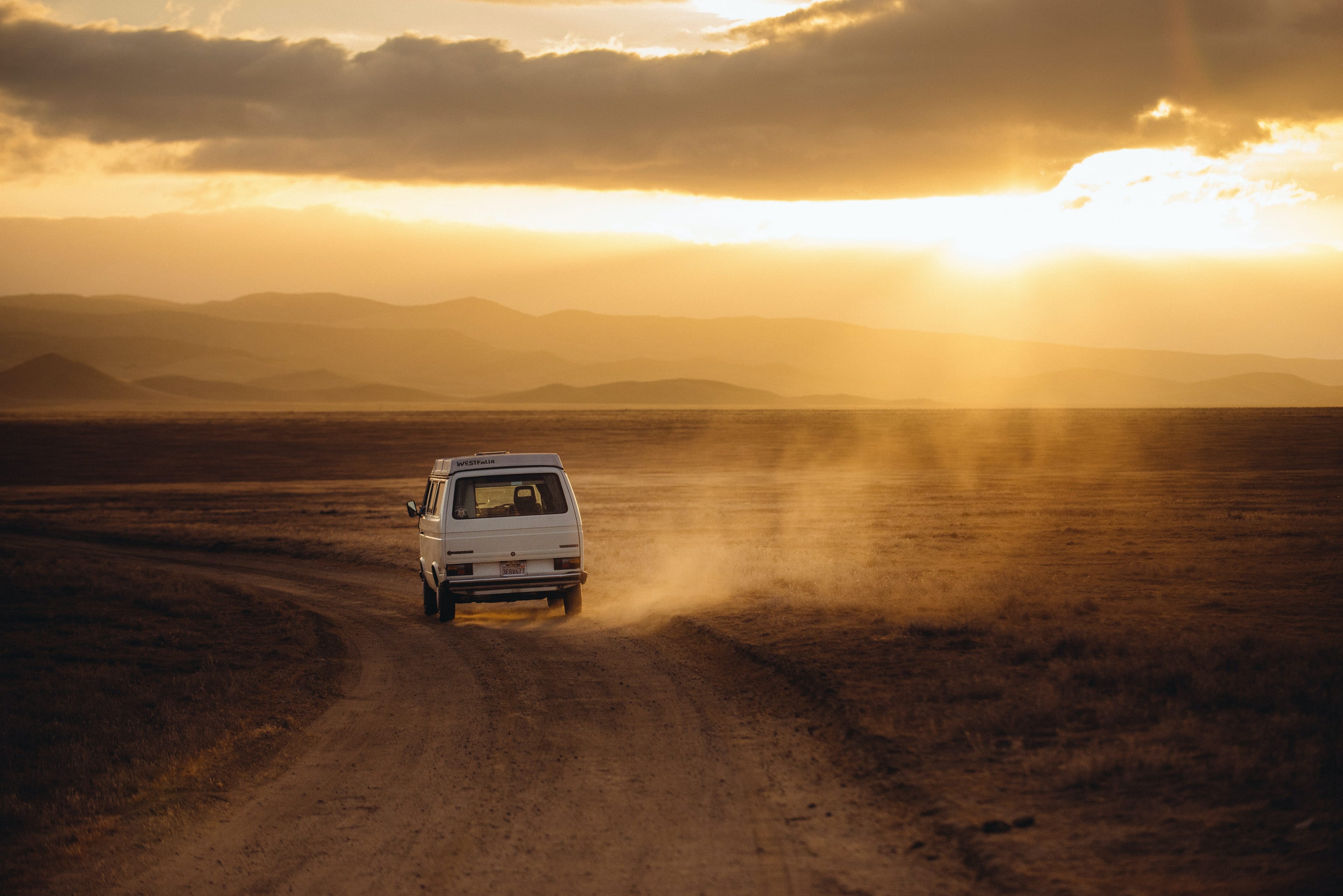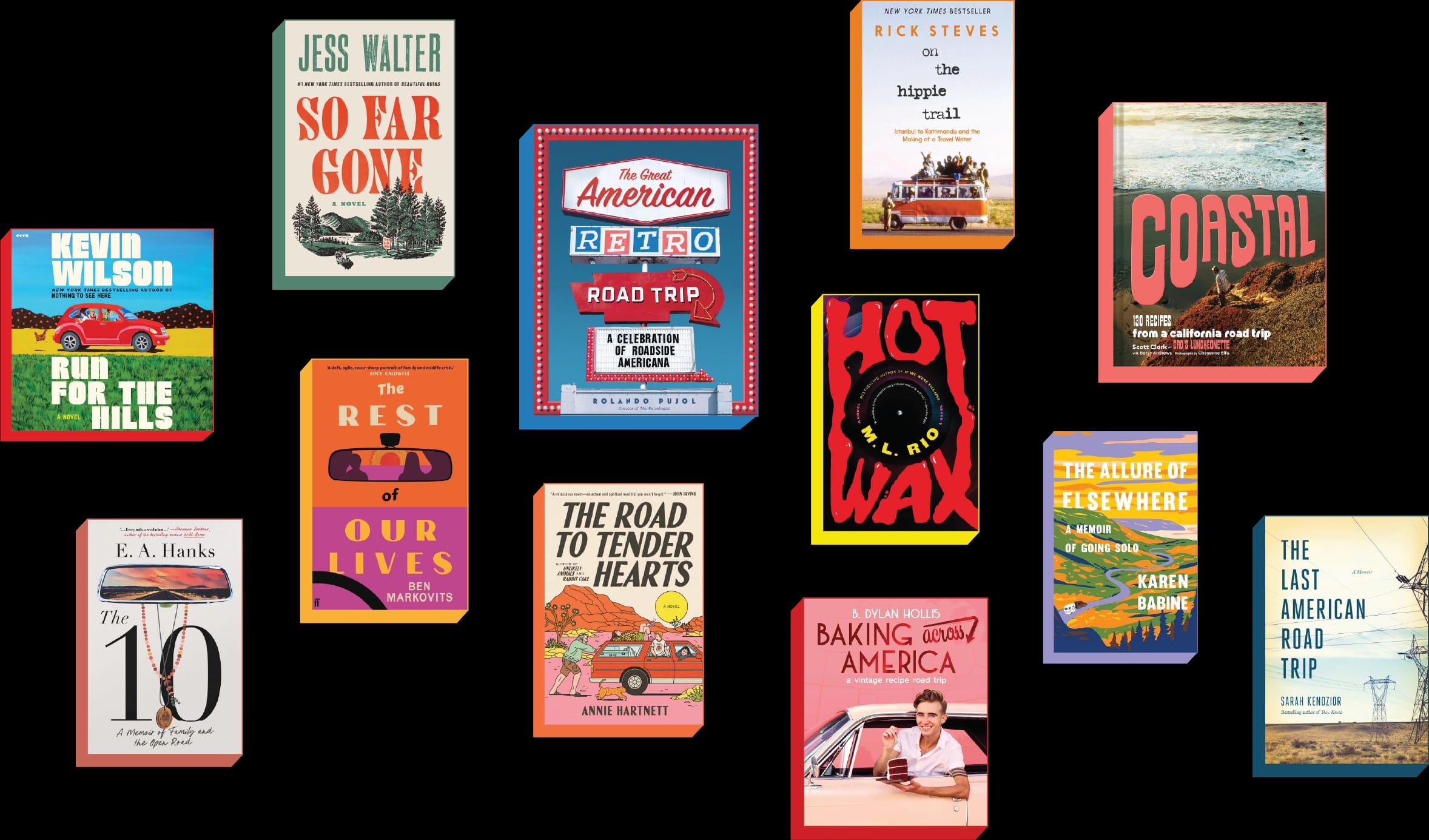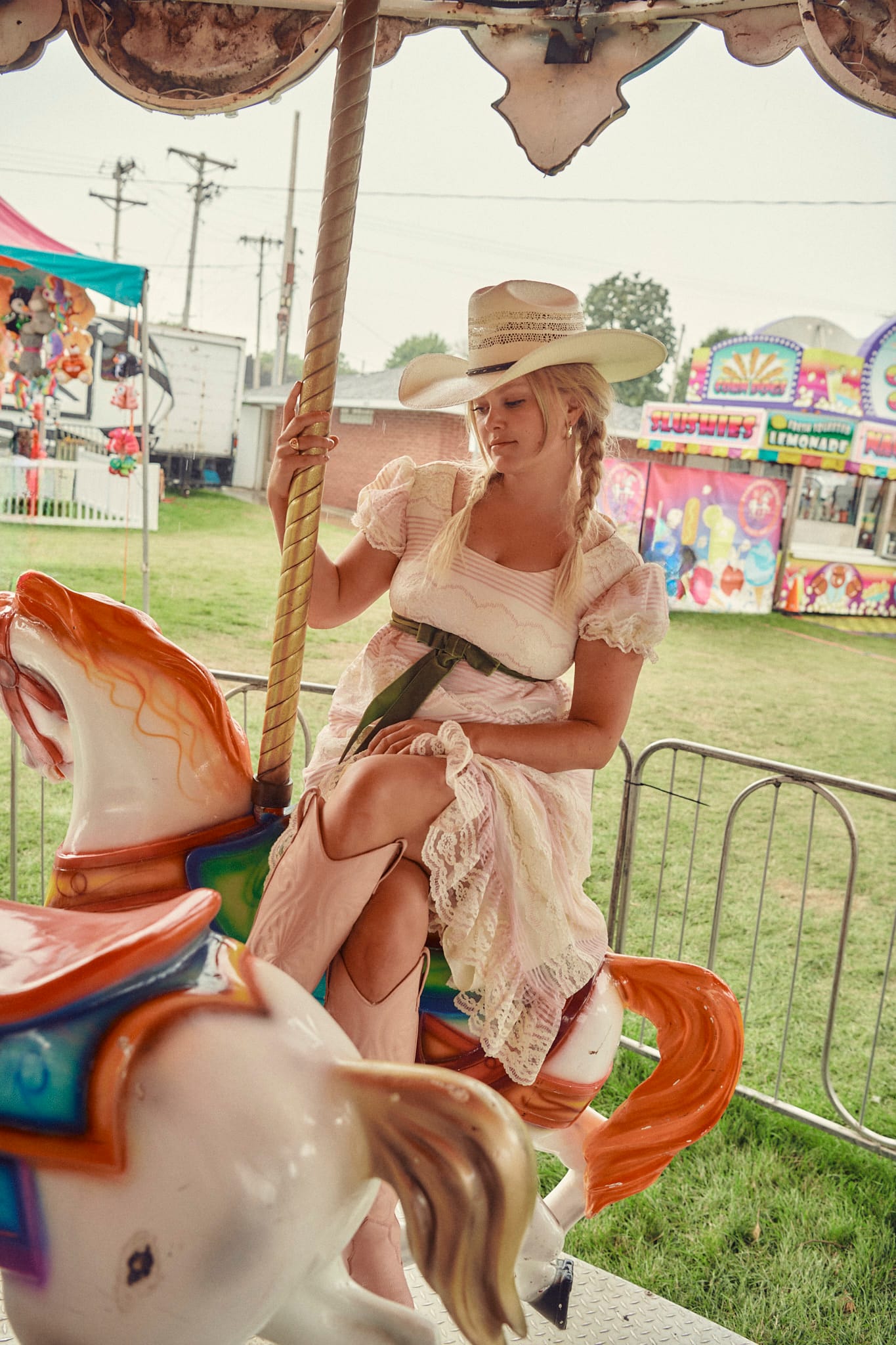The Ross Brothers Have a New Approach to the Cinematic Road Trip
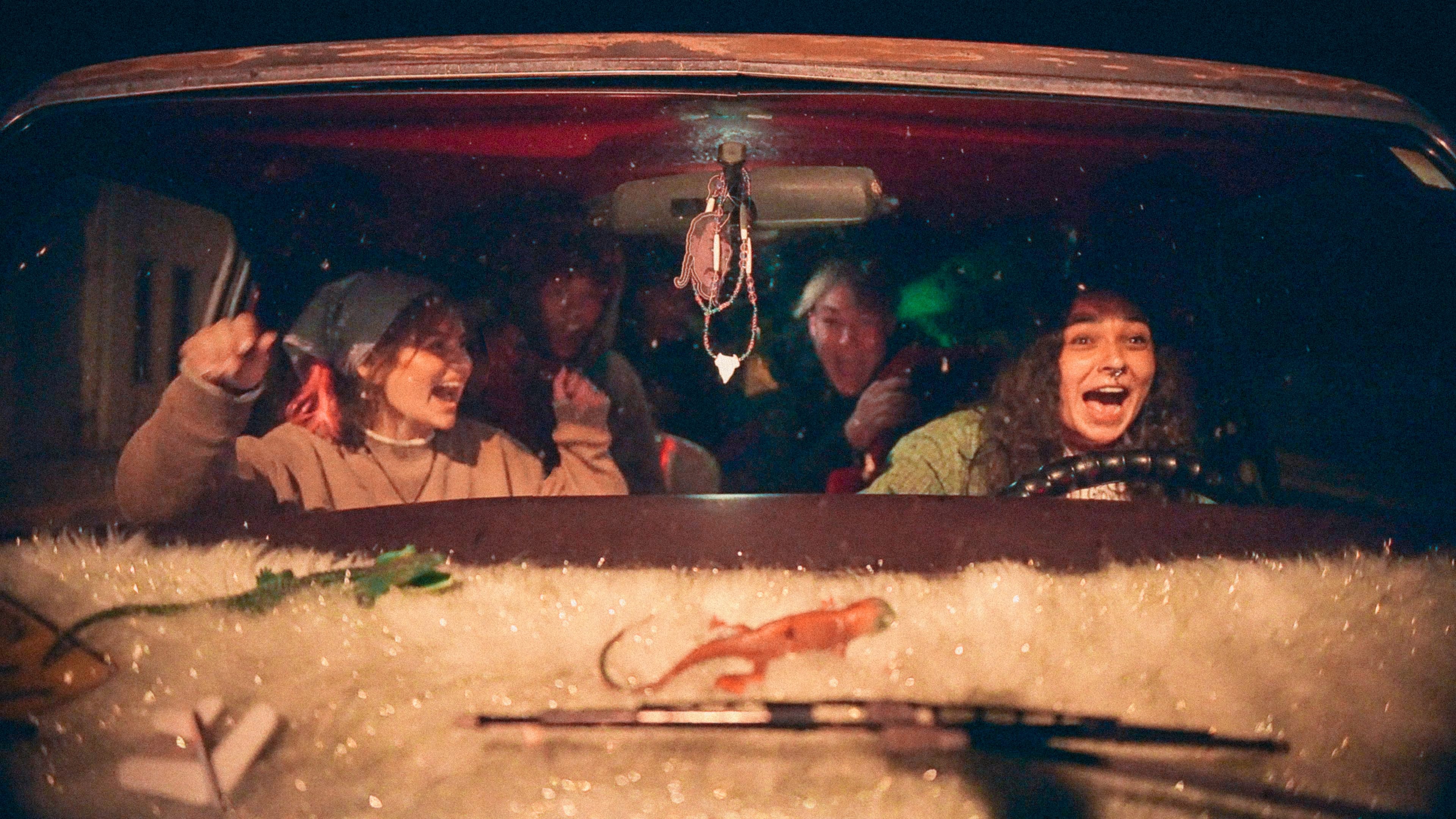
Gasoline Rainbow
Wildsam X MUBI
Wildsam has teamed up with MUBI for the launch of Gasoline Rainbow, a roadtrip film directed by the Ross Brothers that's a candid yet deeply loving portrait of a new generation, told in their own words. Watch Gasoline Rainbow today.
Bill and Turner Ross are adventurers. In their youth they’d find trouble just for the hell of it, hitchhiking across the country with the sole aim of creating memories, tied to people and place. This intellectual curiosity has informed their work as directors. The Ross Brothers have spent over a decade creating documentaries that primarily through the festival circuit (Bloody Nose, Empty Pockets; Contemporary Color; 45365), and have been inching towards experimenting and blurring the line between documentary and narrative fiction.
Their latest effort, Gasoline Rainbow (SXSW and Venice Film Festival selection), takes their pioneering hybrid approach and applies it to the cinematic road trip. The film finds a group of recent high school grads from inland Oregon embarking on a quest to find the “party at the end of the world.” They pile into a van with a busted tail light seeking a place they’ve never been—the Pacific coast, five hundred miles away. The result is a candid yet deeply loving portrait of this new generation, as told in their own words. Equal parts The Puffy Chair, Slacker, and Frederick Wiseman, Gasoline Rainbow is a wild and true coming-of-age tale with a beating heart and an irrepressible spirit.
To celebrate the release of the film, Wildsam teamed up with MUBI on a special edition of our Pacific Northwest field guide, which features a list of road trip movies, nuggets on the Oregon of Gasoline Rainbow and a three-page interview with the Ross Brothers. This is an extended version of the interview—a director’s cut if you will.
What got y'all into filmmaking?
Bill Ross: Once our mom got a video camera back in the day, it was just a curiosity. That’s how it started. We've been doing this together since we were little kids. Having fun seeing movies, then seeing if we could make them.
Turner Ross: We headed into other careers. I was turning into a painter. Bill was trying to get into graphic design and then he got into this film program and it sort of came alive again.
What was your childhood like growing up in Ohio?
BR: A town of about 20,000 people. I don't even know where to start… we were bad kids. [laughs].
TR: Yesterday we visited two places. We visited Clyde, Ohio where Sherwood Anderson is from, who wrote “Winesburg, Ohio.” We also visited the corner of East 99 and St. Clair where Bone Thugs-N-Harmony are from. And I think we were somewhere in between those two.
BR: We were sweet kids. We liked trouble. We liked doing stuff we shouldn't be doing because you were told not to.
Gasoline Rainbow’s logline says, “five teenagers from a small town in Oregon with high school in the rearview decide to embark on one last adventure, make it to a place they've never been the Pacific Coast 500 miles away.” Just reading that, it sounds like a teenage sex comedy and that's definitely not what this movie is. What is it about y'all that makes you have this idea that's something that we've seen many times before in cinema, then to completely subvert it?
TR: We are inspired by the canon of things that we've all seen, but I think the things that we take away from it aren't the tropy parts. They're the really sincere moments of heart and epiphany and landscape and human landscape that stick with you—movies like the Goonies, Stand By Me, My Own Private Idaho. That’s in our knowledge bank and creative spirit bank.
We've gone on endless road trips. Escaped with our friends. Snuck out in the middle of the night. Hopped trains and hitchhiked for thousands of miles. These things are deeply a part of us. The things that we remember are actually the conduits that keep us going along the way. The people who help you along the way, the stories you discover along the way. You remember some of the hijinks and you'll remember some of the beautiful landscapes and all of that, but this barter system of humanity that guides you through and teaches you a little bit about where you are and where you're going, somebody giving you a piece of knowledge—that story was more important for us to tell than having the tropey sex comedy.
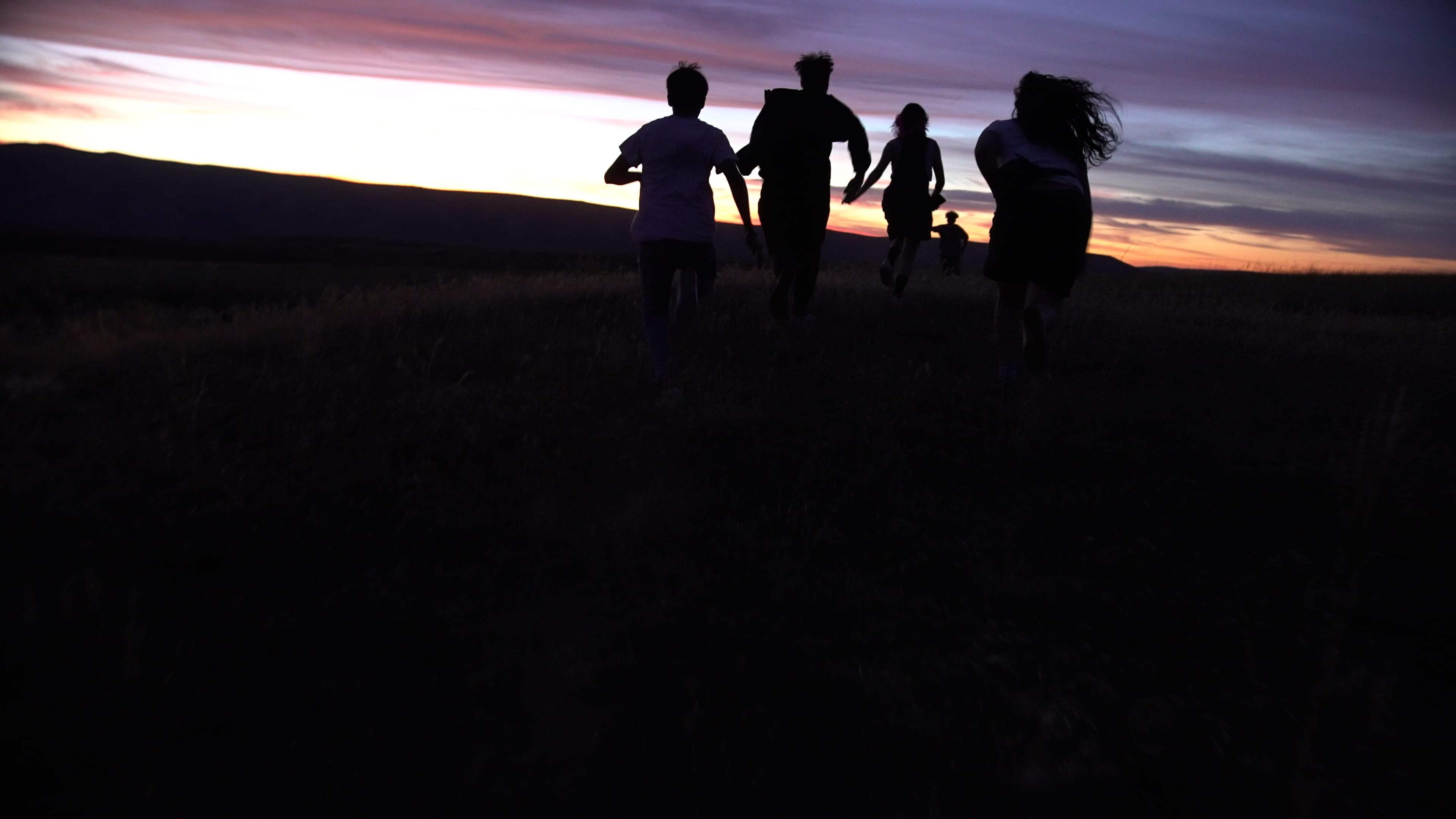
Is that how you always envisioned Gasoline Rainbow?
BR: When we first thought about doing this movie, we thought it was going to be a darker, wilder, more depraved kind of thing. When we came across these kids, they were the type of kids that would sneak out of the house at night to go find some trouble like us, but they were just so kind and looked out for each other. The movie really took over their personality and became something pretty different.
TR: It's the nature of the kids. This is the way that we work. We did create this world and build the scenarios, but we didn't know exactly in each instance how we would get there. The kids are the authors of their experience. Like Bill said, we might've imagined this a little differently. We were kind of shitty kids from a different time. These kids had a barter system of care and kindness and wanted to meet people who were different and weren't turning their backs on people who were different. That was our learning experience. The thing stays alive and we're learning the entire time instead of dictating what's going on.
You've captured the lives of plenty of different people in different parts of the country across generations. I'm just curious how unique you find people in different parts of the country. Also, are there any differences you see between Gen Z, Millennials, Gen X?
TR: Yeah, certainly there are regional colloquialisms and differences between people, certainly generationally. We discovered these kids to be unstuck in time. All moments in time are relevant because of the internet and the things they've grown up with. They can be listening to music that we grew up with and they're finding it for the first time. So for them it's new. Everything is relevant all the time, but they were also interested in being present in their own situation, to being in the present tense and creating a version of it that was theirs. That seemed really cool to us.
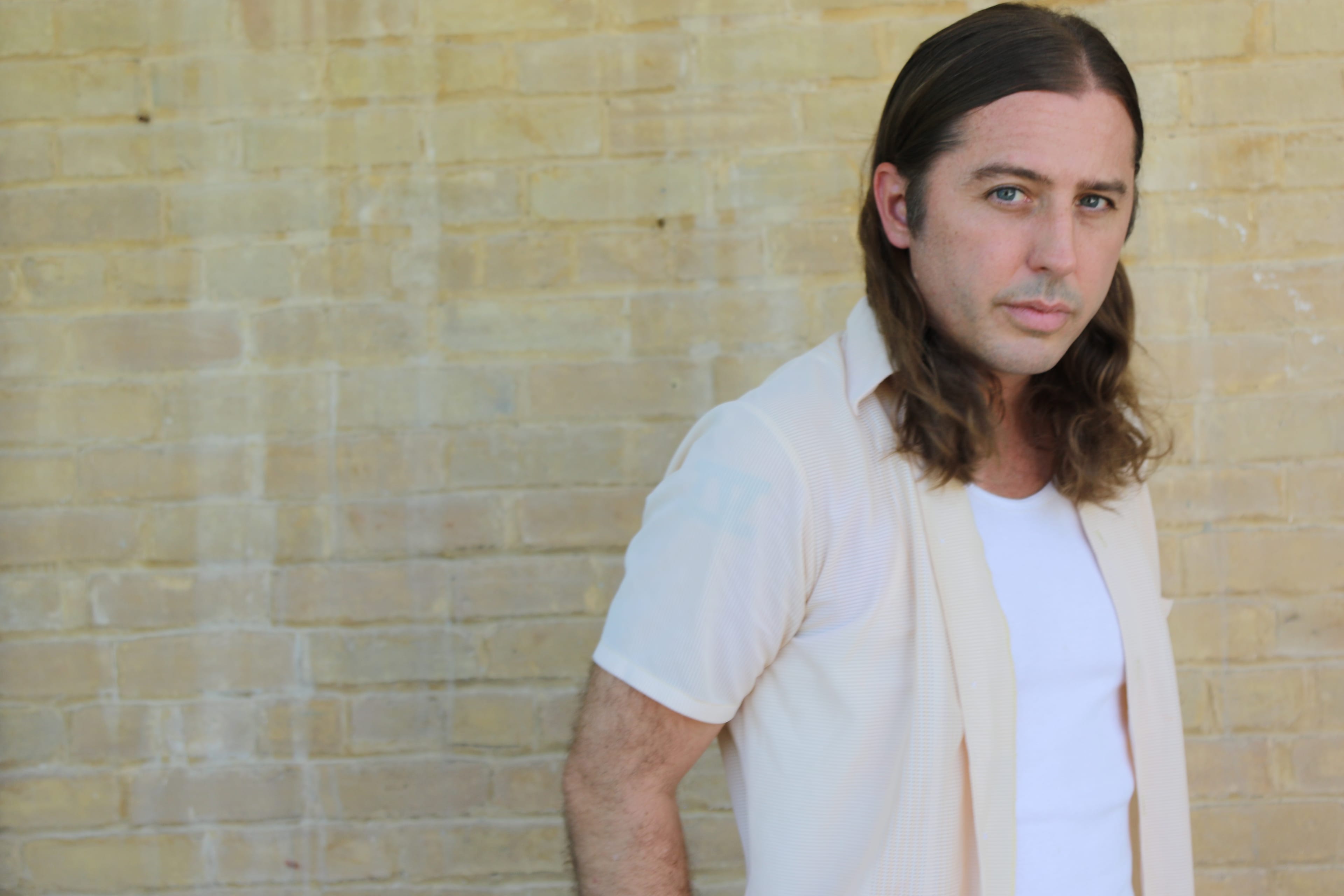
What role do politics play in your films?
BR: We're always very interested in what is going on socially and politically in the area that we're in, but we don't want it to be the driving force. With the Bloody Nose, Empty Pockets, it was especially hard because we shot it the day after Trump got elected. We did a lot of editing to get it out of there. You can feel it on the outside of the frame that something has happened that some people really don't agree with and some people are very excited about. So it caused an energy to be there. He is mentioned once or twice in there, so it does date it, but we don't want the films to be dated. We want them to be more universal. And the same with Covid [in Gasoline Rainbow]. We didn't want to see people in masks. We didn't want to hear that word, but you could feel the energy that it caused.
TR: It colors the perimeters of the things that we're doing. This isn't about making a political statement, it's about making an assessment of the world within the conditions that are creating that moment, what are the repercussions of that moment. Politics is us all speaking to each other and deciding where we are and what our identity is and what we choose to be the marquee of that.
How do you achieve giving the viewer a sense of being there?
TR: It's about breaking down the experience to its component parts. Not telling people where you are, what's going on, but what would you remember? What would you take away? What image, what sound, what touch, what moment, what thing really tells the story? And how do we make sure that we don't get in the way of that. We don’t want people to feel us in the in-between. We want to allow them to be characters making a discovery in that space as well.
BR: I think because they are very intimate films—we're there producing, directing, photographing—we were there. We know what it was like to be there. Once we get to the edit, then you remember. It's more of a sensory thing of what it felt like to be in that space. I don't know. It's something that you're lucky if you can pull off.
TR: It helps to be a little messy too.
BR: It helps for the film to be very messy and to have the time to be in those places. With a fictional shoot, it would just be a location. With documentaries you'd have to get out of there. They'd fly in for the interview, pick up a couple shots, then fly out. But because the way we're going about it, we're really there and living it with the folks on the other side of the lens. That’s also the intention rather than story. We're in those places because most of the time love them and have genuine affection for the people and places. We want to really do right by the people and the place.
Why did you land on Pacific Northwest for this film?
TR: It's such an incredible, diverse landscape. It's not what people typically think of the Pacific Northwest or especially areas like Portland. You think of Portland, especially at that moment in time, with one very specific distinction. They had riots every night for a year. And so people think about, “oh, liberal Portland and riots, they just legalized all drugs—this is what the Northwest is.” Or they think about foggy forests and coastlines and there's just a very specific view of what that world is. But it's so much more than that. The reality of Oregon, specifically Portland and some of the other cities, is that they’re just little islands in a very different backdrop. You can start off in this insane desert landscape. But it's also predicated on experiences that we'd had.
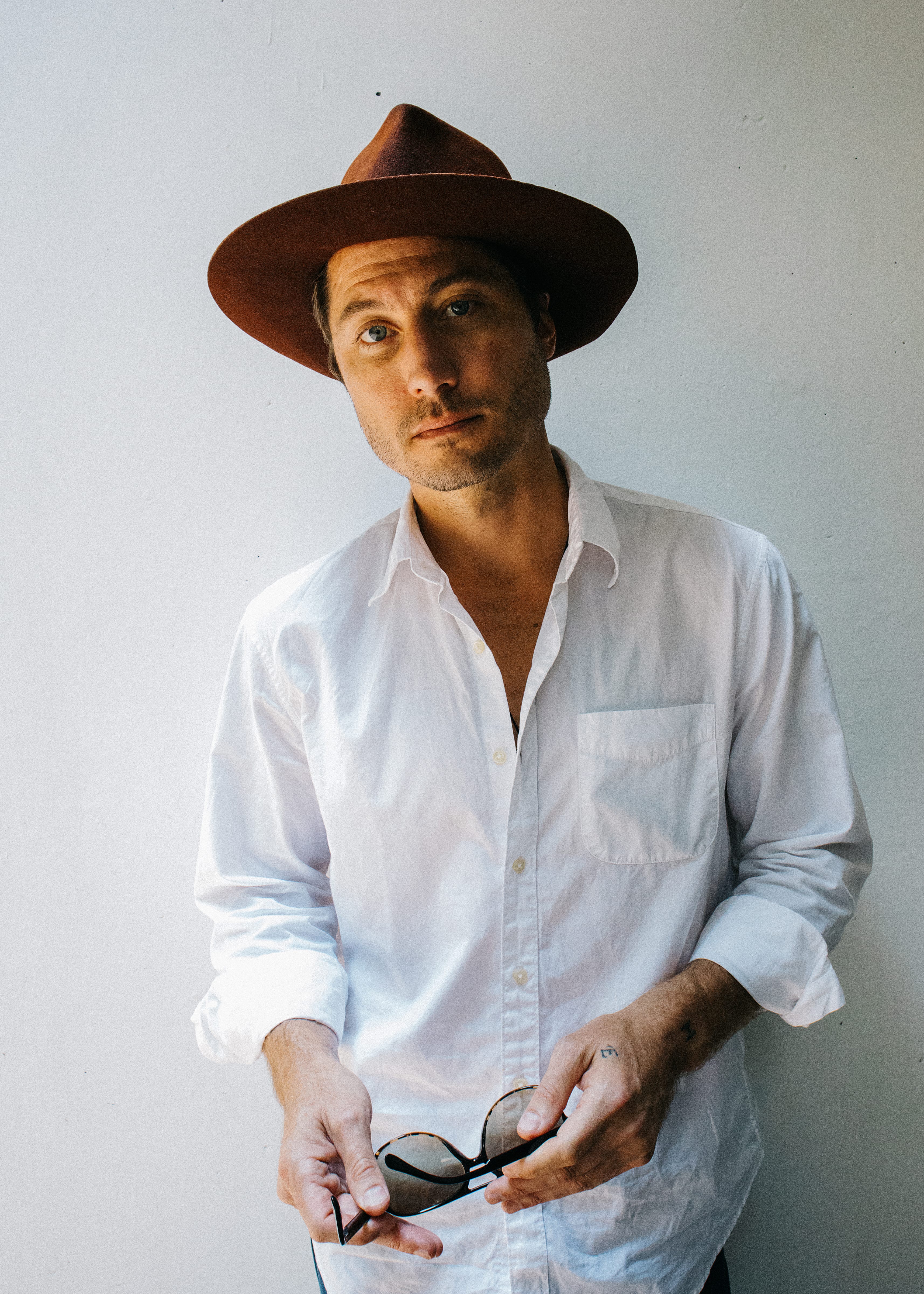
What sort of experiences?
TR: We had spent time in the there for various reasons. I'd spent a lot of time up there hitchhiking across the states, hopping trains and sort of getting off the path. Really loving those experiences and coming home, remembering them. It’s also a landscape I knew I wanted to explore. I knew we would mutually fall in love with it all over again.
BR: It was also just a place we had never made a film
What's the hardest thing about filmmaking?
Turner Ross: Trying to have a life outside of it. Maintaining relationships and having a bank account.
Having a bank account?
I mean, the way we work it is all-consuming is the thing. So every part of it is difficult. Every part of it is magical and rewarding, but that duplicity is almost always present.
What's the best part of working with a sibling?
BR: There's a level of comfort to knowing exactly who you're working with. But the joy of it is you get to hang out with your best friend all day. We have shared goals, and you're going to take care of your brother and you're going to look out for that person more than anybody else and in all the ways.
You talked earlier bank accounts and painting and things of that nature. I'm curious what ways do you subsidize your art with other work?
Bill Ross: Working for other folks. We shoot and edit and act, and I guess that's about it. And we've been at this long enough that it's somewhat self-sustaining, but the people that we have met all along the way and came up with in the independent film world, we work on each other's projects and some people can dish out a pretty good paycheck.
You worked with a legend in David Byrne.
BR: Yes. It was one of the most amazing collaborations I’ve ever had. He had seen one of our previous films and was thinking up this pretty wild event. We met and he asked how we would approach it. We told him thinking that he would never go for it. We said it would be like a mashup between The Muppets and professional wrestling thinking he'd be like, “okay, meeting's over,” and it was just the start of a really great friendship and genuine artistic collaboration.
TR: He’s a great artist and an enduring one. He never looks backwards and he's always curious and just continues the work because he loves it.
BR: He has real little-kid curiosity about the world. And I just find that so inspiring. We can all get so beat up and jaded in life. No, you got to keep that light burning. Wonderment. Belief that there is beauty in the world.
You’ve mentioned road trip adventures throughout the course of this interview, what’s your most memorable trip?
BR: We took a rickety boat from Wheeling, West Virginia to New Orleans. Ourselves, our youngest brother, Al, and our best friend Kyle. We nearly died.
TR: Nearly died. But we needed some Huck Finn in our lives—see if it could still be done. But the reality is, we wrecked our boat in Greenville, Mississippi and had to hitchhike the rest of the way. And every stripe of person picked up that motley crew of people.
TR: It was more like a tool shed on pontoons. But we dressed like it was 1890.
TR: That's the thing is having hitchhiked thousands of miles across America, there's not a set demographic of people who will pick you up. And that kind of blows my mind. It doesn't mean you won't get into some dangerous shit and there won't be some problematic encounters, but it's what gave us hope to have the kids go through these things. Sometimes it doesn't work out. I caught this great train across Montana once, and then it dropped me off in the middle of the state and just stopped. I was a hundred miles from anywhere and kind of fucked. Sometimes the wheels come off the band.
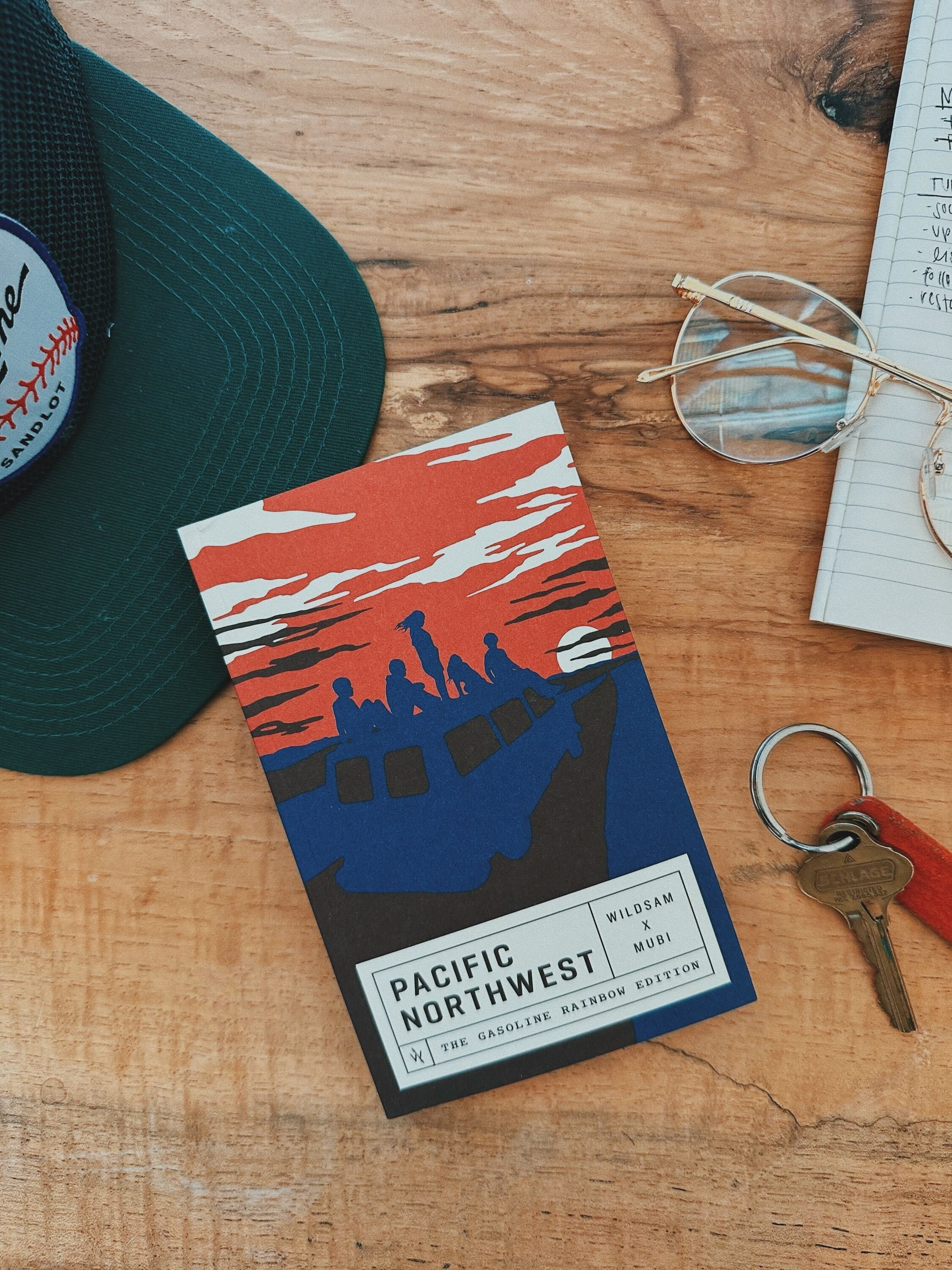
Pacific Northwest
Mubi x Wildsam
Get a free copy of our special edition Pacific Northwest field guide celebrating Gasoline Rainbow with a purchase at Wildsam. (while supply lasts, digital guides excluded).
